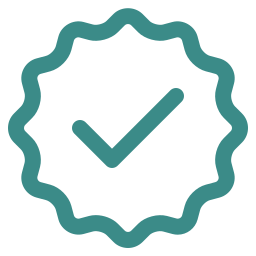Discover How Prenatal Pilates Can Boost Your Strength, Ease Discomfort, and Prepare You for a Smoother Delivery
Did you know that nearly 60% of pregnant women experience lower back pain?
Prenatal Pilates exercises can markedly alleviate this discomfort by strengthening your core muscles, supporting your spine, and improving your posture.
As you engage in these specialized workouts, you'll not only enhance your physical stamina but also prepare your body for a smoother delivery.
The focus isn't merely on physical health; it's about cultivating mental resilience and emotional balance during a time that can often feel overwhelming.
Curious about how these exercises adjust as your body changes and what specific benefits they offer at different stages of pregnancy?
Understanding Prenatal Pilates
Understanding Prenatal Pilates begins with recognizing its tailored approach to fitness for expecting mothers.
It's a program that adjusts as your body changes, ensuring you're safe but still challenged.
By joining prenatal Pilates classes, you're not just looking after your physical health; you're stepping into a supportive community of fellow moms-to-be.
It's a space where you can share experiences, concerns, and joys in a nurturing environment.
Prenatal Pilates classes are designed with you in mind.
Each session respects your body's current state and anticipated changes.
The instructors are knowledgeable about the different safe and effective Pilates exercises for pregnant women.
They focus on strengthening the muscles you'll rely on most during pregnancy and delivery, like your pelvic floor, back, and abdominal muscles.
But it's not all about the physical; these classes also provide mental and emotional benefits as you prepare for motherhood.
You might worry about doing too much or too little, but that's exactly why prenatal Pilates is perfect.
The exercises are adaptable, allowing you to increase or decrease the intensity according to your comfort and fitness level.
You'll learn to listen to your body, an invaluable skill during pregnancy and beyond.
Physical Benefits of Prenatal Pilates
Prenatal Pilates offers significant physical benefits that can enhance your comfort and strength throughout pregnancy.
Engaging in reformer Pilates while pregnant isn't just safe; it's beneficial.
These carefully designed exercises adapt to your changing body, helping you maintain balance and flexibility as your belly grows.
If you buy a reformer Pilates and use a reformer Pilates during pregnancy, it will allow for a tailored workout that supports your spine and pelvis.
This is essential as the extra weight you're carrying can lead to back pain and pelvic discomfort.
The gentle resistance of the Peak Pilates reformer machine helps strengthen your core muscles, which are pivotal in supporting this added weight and in preparing your body for childbirth.
Moreover, reformer Pilates focuses on controlled movements that improve your posture.
This is especially important during pregnancy, as a proper posture reduces strain on your back and joints, alleviating common discomforts like sciatica and pelvic pain.
By enhancing your alignment and stability, you're not only boosting your physical state but also fostering a sense of bodily awareness that connects you more deeply with your changing physique.
As you strengthen your body, you'll likely notice increased endurance and energy levels, making daily tasks more manageable.
Plus, these exercises can be modified to suit your needs at different stages of pregnancy, ensuring you feel included and capable no matter your fitness level.
Mental Health Advantages
Beyond the physical benefits, prenatal Pilates also offers mental health wellness that can be particularly valuable during pregnancy.
When you're expecting, you're not just nurturing a life inside you; you're also traversing an emotional landscape that can sometimes feel overwhelming.
Prenatal Pilates creates a space where you can focus on your well-being, reducing stress and enhancing your mood.
Firstly, engaging in gentle exercise like Pilates can greatly alleviate symptoms of prenatal anxiety and depression.
It's a time for you to connect with your body and your baby in a positive, affirming way.
The rhythmic movements and controlled breathing integral to Pilates help in calming your mind, making you feel more grounded and less anxious.
If you're wondering, "Can you do reformer Pilates while pregnant?" the answer is YES, with some modifications.
Prenatal classes are tailored to guarantee safety and cater to your body's changing needs.
Reformer Pilates is safe for pregnancy, provided you're under the guidance of a certified instructor who understands the dos and don'ts during these vital months.
Moreover, this practice can also forge a sense of community as you meet other expectant mothers.
Sharing experiences and support can reinforce feelings of belonging and help you manage the emotional highs and lows of pregnancy.
Preparing for Labor With Pilates
While prenatal Pilates helps you manage stress and connect with other expectant mothers, it also plays a significant role in physically preparing your body for childbirth.
This gentle form of exercise using a Basi systems machine can make a significant difference in your labor experience, making it smoother and potentially more manageable.
Pilates focuses on strengthening your pelvic muscles, improving flexibility, and enhancing your breath control—all essential for when you're in labor.
By engaging in prenatal Pilates, you're not just preparing your body to bring life into this world; you're also giving yourself a mental edge.
You'll feel more connected to your body, understanding its needs and responses better.
Here's how Pilates prepares you for labor:
Enhances Muscle Elasticity and Strength
Strengthening your pelvic floor and abdominal muscles helps in managing the pressures of labor.
Strong muscles can lead to more effective pushing during delivery.
Improves Stamina and Endurance
Regular sessions increase your endurance.
This is critical as labor can be prolonged, and stamina plays a key role in managing the stages of childbirth.
Teaches Effective Breathing Techniques
Proper breathing is essential during labor.
Pilates trains you to control your breathing, helping you manage pain and stay calm during contractions.
To find a "prenatal Pilates near me," you can search online directories or ask for recommendations in local parenting groups.
Safety Guidelines for Prenatal Pilates
As you commence your prenatal Pilates journey, it's crucial to prioritize safety to protect both you and your baby.
You're not just exercising for yourself now; you're nurturing and preparing your body for the demands of childbirth and motherhood.
Firstly, always consult with your healthcare provider before starting any new exercise program, especially during pregnancy.
They'll confirm if prenatal Pilates is safe for you and provide any specific precautions based on your health history.
Once you have the green light, seek out a qualified Pilates instructor who's experienced in prenatal exercise.
They'll tailor the workouts to your needs, ensuring that each movement supports your changing body.
Remember, it's not about pushing your limits; it's about maintaining your health and well-being.
Avoid exercises that require you to lie flat on your back after the first trimester, as this position can decrease blood flow to your uterus.
Instead, focus on exercises that strengthen your core, improve your balance, and enhance your flexibility, all while keeping you mostly upright or on your side.
Listen to your body and take breaks as needed.
Hydration is also key, so keep water nearby and sip frequently.
If you ever feel dizzy, short of breath, or experience any pain, stop immediately and consult your healthcare provider.
Frequently Asked Questions
Can Prenatal Pilates Help With Morning Sickness?
You're curious if prenatal Pilates can help with morning sickness.
While it's not a direct cure, engaging in gentle Pilates exercises using your Merrithew V2 Max Plus Reformer bundle can improve your overall well-being, potentially easing nausea.
It helps by enhancing your digestion and boosting circulation, which might alleviate some symptoms.
Give it a try; it's a great way to feel connected with your body and other expecting moms.
Always check with your doctor before starting any new exercise routine.
Are Online Prenatal Pilates Classes Effective?
Yes, because the offer flexibility to fit into your busy schedule and provide tailored exercises that cater to your changing body.
Plus, you'll connect with other expectant mothers, creating a supportive community.
How Soon After Delivery Can I Resume Pilates?
Jumping back into Pilates after delivery can be like reigniting an old friendship—it's familiar but needs gentle reacquaintance.
You should typically wait until your doctor gives the green light, usually during your postnatal check-up around 6 weeks post-delivery.
Listen to your body and ease into it, feeling supported and connected with others on the same journey.
It's a great way to strengthen and reclaim your body while nurturing your well-being.
Can Pilates Reduce the Risk of Prenatal Depression?
Yes, practicing Pilates can indeed help reduce the risk of prenatal depression.
By focusing on breathing and gentle movements, you're not only strengthening your body but also boosting your mood and mental well-being.
It's a wonderful way to connect with your baby and feel part of a supportive community.
Always check with your healthcare provider before starting any new exercise regimen, but incorporating Pilates could be a positive step for your pregnancy journey.
Conclusion
Did you know that engaging in prenatal Pilates can reduce the risk of prenatal depression by up to 50%?
By embracing these exercises, you're not only strengthening your body but also boosting your mental resilience.
Remember, it's essential to follow safety guidelines and consult with your healthcare provider to tailor the workouts to your needs.
So, join the community of expecting mothers finding strength and support through Pilates, and transform your pregnancy journey into a healthier, more joyful experience.




